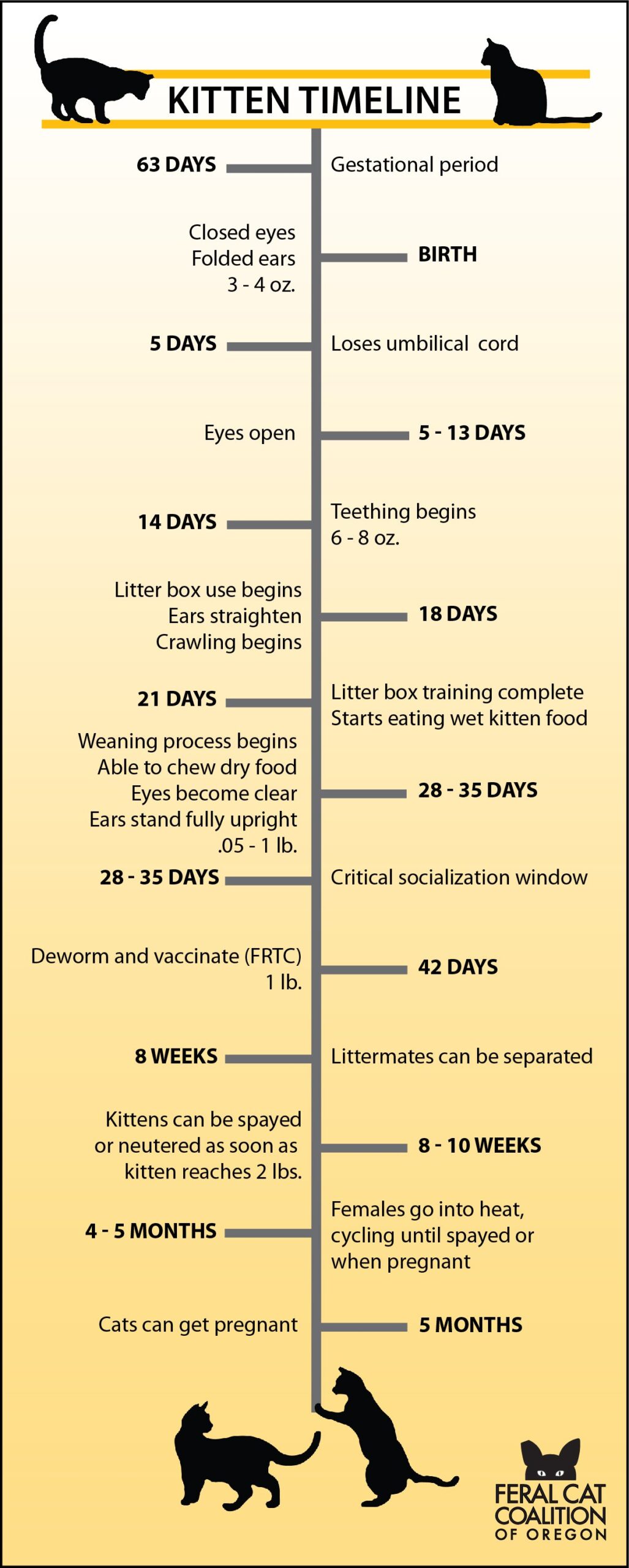Key Takeaways
It can take anywhere from a few days to several weeks to socialize a feral kitten, depending on its age and past experiences.
Kittens under 8 weeks old are usually the easiest to socialize, while older kittens may take more time and patience.
Building trust with a feral kitten involves consistent, gentle interactions and creating a safe, comfortable environment.
Using food and toys can be effective tools in winning a feral kitten’s trust and encouraging positive associations with humans.
Patience and persistence are key; setbacks are normal, but with time, most feral kittens can become loving companions.
How Long Does It Take to Socialize a Feral Kitten and For It to Adjust?
Socializing a feral kitten is a rewarding journey, but it requires time, patience, and a lot of love. The length of time it takes to socialize a feral kitten varies significantly depending on several factors, including the kitten’s age, personality, and previous experiences with humans.
“About Feral Kittens — Feral Cat …” from www.feralcats.com and used with no modifications.
Determining the Kitten’s Age
The first step in socializing a feral kitten is determining its age. Kittens under 8 weeks old are generally easier to socialize because they are more adaptable and haven’t developed strong fears of humans yet. To determine a kitten’s age, observe its physical characteristics and behavior:
0-2 weeks: Eyes closed, ears folded, dependent on the mother for warmth and food.
2-4 weeks: Eyes open, starting to explore, still dependent on the mother.
4-6 weeks: More active and playful, beginning to eat solid food.
6-8 weeks: Very playful, eating solid food, learning social skills from siblings and mother.
8+ weeks: More independent, but still learning and adaptable.
Different Socialization Timeframes
The socialization timeframe can vary greatly. Here are some general guidelines:
Kittens under 8 weeks: These kittens can often be socialized within a few days to a week. They are still very impressionable and can quickly learn to trust humans.
Kittens 8-12 weeks: These kittens may take a bit longer, usually a few weeks, as they may have started to develop some wariness of humans.
Kittens 12+ weeks: Older kittens can take several weeks to months to socialize, as they are more set in their ways and may have had negative experiences with humans.
Factors Influencing Socialization Speed
Several factors can influence how quickly a feral kitten can be socialized:
Previous experiences: Kittens who have had some positive interactions with humans may socialize faster.
Personality: Some kittens are naturally more curious and bold, while others are more timid and cautious.
Environment: A calm, quiet environment can help a kitten feel safe and reduce stress, speeding up the socialization process.
Consistency: Regular, gentle interactions help build trust and familiarity.
Can You Make Friends with a Feral Kitten?
Yes, you can make friends with a feral kitten! It takes time and effort, but the rewards are worth it. The key is to build trust gradually and consistently.
Building Trust Step by Step
Building trust with a feral kitten involves several steps, including creating a safe environment and using pet-safe plants like Angelonia to ensure the kitten feels secure.
Create a safe space: Provide a small, quiet room where the kitten can feel secure. Include a cozy bed, food, water, and a litter box.
Spend time nearby: Sit quietly in the room, allowing the kitten to get used to your presence. Read a book or talk softly to help the kitten associate your voice with calmness.
Use food as a bonding tool: Offer tasty treats or wet food from your hand. This helps the kitten associate you with positive experiences.
Gradual touch: Once the kitten is comfortable eating near you, try gently petting it while it eats. Start with brief touches and gradually increase the duration.
Playtime: Use toys to engage the kitten in play. Interactive toys like feather wands can help build trust and provide positive interactions.
Signs of Progress and Setbacks
It’s important to recognize signs of progress and understand that setbacks are normal. Progress may include the kitten approaching you, purring, or seeking out your touch. Setbacks might include hiding, hissing, or swatting. If a setback occurs, take a step back and give the kitten more time to adjust.
Most importantly, remember that every kitten is unique. Some may warm up to you quickly, while others might take longer. Celebrate the small victories and stay patient through the setbacks.
Challenges and Opportunities of Socializing Older Kittens
Older kittens, especially those around 10 weeks or older, present a unique set of challenges and opportunities. These kittens have had more time to develop their fear of humans, making the socialization process more complex. However, they are still young enough to be molded into loving pets with the right approach. For more detailed guidance, check out this guide to socializing shy or feral kittens.
Special Considerations for 10 Week Old Kittens
When socializing a 10-week-old feral kitten, keep these special considerations in mind: Kitten Lady offers excellent tips on how to approach and care for feral kittens.
Patience: Older kittens may be more set in their ways, requiring extra time and patience.
Consistent routine: Establish a consistent routine for feeding, playtime, and socialization to build trust.
Positive reinforcement: Use treats and praise to reinforce positive behavior and interactions.
Gentle handling: Be gentle and calm when handling the kitten to avoid scaring it.
Success Stories of Socializing Older Kittens
Many people have successfully socialized older feral kittens, turning them into affectionate pets. For example, consider the story of Luna, a 12-week-old feral kitten found in a neighborhood alley. Initially, Luna was terrified of humans and would hiss and hide whenever someone approached. With consistent, gentle interactions and plenty of treats, Luna gradually began to trust her foster family. After a few months, she became a loving, playful kitten who enjoyed cuddling and playing with her new family.
“Luna’s transformation was incredible. It took time and patience, but seeing her go from a scared, feral kitten to a loving, affectionate pet was worth every effort.” – Luna’s foster parent
Practical Tips for Socializing Feral Kittens
Successfully socializing a feral kitten requires a strategic approach. Here are some practical tips to help you along the way:
Creating a Safe Space for Socialization
The first step in socializing a feral kitten is to create a safe and comfortable environment. A small, quiet room where the kitten can feel secure is ideal. Equip the space with a cozy bed, food, water, and a litter box. Avoid loud noises and sudden movements that might scare the kitten.
In this safe space, spend time sitting quietly, allowing the kitten to observe you from a distance. This helps the kitten become accustomed to your presence without feeling threatened.
Using Food to Win Trust
Food is a powerful tool in building trust with a feral kitten. Offer tasty treats or wet food from your hand to create positive associations with your presence. Start by placing the food near the kitten and gradually move it closer to you over time. This encourages the kitten to approach you willingly. For more tips on keeping your pets safe, check out our guide on pet-safe evergreen shrubs.
Consistency is key. Feed the kitten at the same times each day, and use mealtime as an opportunity to interact and build trust.
Gradual Introduction to Human Touch
Once the kitten is comfortable eating near you, begin to introduce gentle touch. Start by petting the kitten briefly while it eats, gradually increasing the duration of the touch. Always be gentle and calm, and watch for signs of discomfort. If the kitten seems scared or stressed, take a step back and give it more time to adjust. For more detailed guidance, you can refer to this guide to socializing feral kittens.
Monitoring and Adjusting Socialization Techniques
Throughout the socialization process, it’s important to monitor the kitten’s progress and adjust your techniques as needed. Pay attention to the kitten’s body language and behavior. If the kitten shows signs of stress or fear, slow down and give it more time to adjust. Celebrate small victories and be patient through setbacks.
“Patience and consistency are key when socializing a feral kitten. It’s a gradual process, but with time and effort, you can build a strong bond with your new furry friend.” – Kitten socialization expert
Common Mistakes to Avoid
When socializing a feral kitten, it’s important to avoid common mistakes that can hinder progress. Here are some pitfalls to watch out for:
For more detailed guidance, you can refer to the Kitten Lady’s guide on socializing feral kittens.
Forcing Interaction Too Soon
One of the biggest mistakes people make is trying to force interaction before the kitten is ready. This can cause the kitten to become more fearful and resistant to socialization. Instead, let the kitten approach you on its own terms and gradually build trust through positive experiences.
Remember, patience is crucial. Rushing the process can set back progress and make it harder to build a trusting relationship.
Neglecting Patience and Consistency
Another common mistake is lacking patience and consistency. Socializing a feral kitten takes time and effort, and it’s important to be consistent in your interactions. Spend time with the kitten every day, and follow a regular routine for feeding, playtime, and socialization.
Ignoring Health and Wellness Checks can lead to serious issues for your pets. For example, certain plants can be toxic to animals, so it’s important to know which ones are safe. One such safe option is Angelonia, which is not toxic to dogs and cats.
Finally, don’t neglect the kitten’s health and wellness. Regular veterinary check-ups are important to ensure the kitten is healthy and free from parasites or illnesses. A healthy kitten is more likely to be receptive to socialization efforts.
Adoption and Long-Term Goals
Once the feral kitten has been successfully socialized, the next step is finding a forever home. Transitioning from foster care to adoption requires careful planning and preparation, including creating a safe environment for the kitten.
Transitioning from Foster Care to Adoption
Before the kitten is ready for adoption, ensure it is comfortable with a variety of people and environments. Introduce the kitten to different family members and friends to help it become more adaptable. Provide a detailed history and care instructions to the new adoptive family to ensure a smooth transition.
Long-Term Commitment to Previously Feral Kittens
Adopting a previously feral kitten is a long-term commitment. The new family should be prepared to continue building trust and providing a stable, loving environment. Ongoing socialization and positive interactions are important to help the kitten thrive.
Integrating into New Homes and Families
When introducing the kitten to its new home, create a safe and comfortable space similar to the one used during socialization. Gradually introduce the kitten to other pets and family members, and continue to provide positive reinforcement and gentle interactions.
Frequently Asked Questions (FAQ)
How long does it usually take to socialize a feral kitten?
The time it takes to socialize a feral kitten varies depending on its age, personality, and previous experiences. It can take anywhere from a few days to several weeks or even months.
What age is best for socializing feral kittens?
Kittens under 8 weeks old are generally the easiest to socialize, as they are more adaptable and haven’t developed strong fears of humans yet.
What should I do if my feral kitten continues to be fearful?
If your feral kitten continues to be fearful, take a step back and give it more time to adjust. Be patient and consistent in your interactions, and try using food and toys to build trust. If needed, seek advice from a kitten socialization expert.
Most importantly, remember that every kitten is unique. Some may warm up to you quickly, while others might take longer. Celebrate the small victories and stay patient through the setbacks.
In conclusion, socializing a feral kitten is a journey filled with challenges and rewards. By understanding the kitten’s age, providing a safe environment, using food and gentle touch to build trust, and avoiding common mistakes, you can help a feral kitten transform into a loving, affectionate pet. Remember, patience and consistency are key. With time and effort, you can make friends with a feral kitten and provide it with a forever home filled with love and care.






